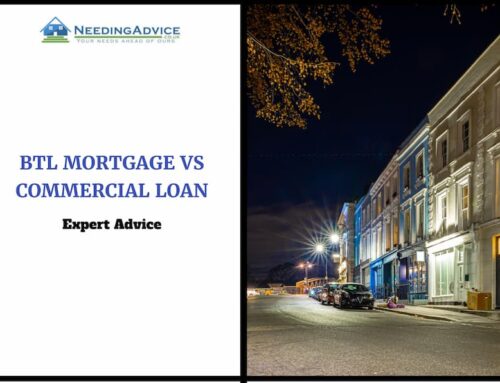The possibility of getting a mortgage when self-employed is a normal problem and is frequently asked about. Although lenders are more cautious when it comes to lending when you’re self-employed, however, they will offer them under the right circumstances.
The net-profit mortgage can be an option for self-employed people who wants to climb onto the property ladder in the UK.
If there are specific questions you’re looking to ask regarding this subject or want assistance that is specific to your needs contact us or send us an inquiry here and we’ll get you in contact with mortgage experts we collaborate with who are happy to assist you.
What is a net profit on a mortgage?
It’s a loan depending on the net profits of your company, regardless of whether you’re seeking a mortgage for sole trader or an unsecured loan for directors of companies. There are two methods that lenders can take: certain lenders will look at the amount before tax, and others will look at the profit after tax.
So the type of mortgage offered to you may differ according to the lender. If one lender refuses to offer the mortgage made up of post-tax profits, however, another lender agrees therefore it’s essential to look around when receiving estimates but aren’t required to research the options by yourself! A mortgage broker with expertise in mortgages with net profits could make your life easier since they’ll be able to suggest the most suitable lender in your particular circumstances.
Who can be eligible for a self-employed mortgage that is based on net income?
The net-profit mortgage can be arranged for any person who runs their own business and thus earns income which is divided into expenses and leftover profits.
It is applicable to people who:
- Achieving a mortgage as a sole trader or sole trader
- In the form of a partnership
- Run a limited company
Additionally, you’ll need to meet the criteria of the lender, which are generally the same criteria for eligibility that you would meet if applying for a different kind of mortgage.
The considerations will be based on:
- How long has your company been in operation?
- Deposit size
- Credit history
- Age
What are the main differences between sole traders and directors of companies?
The way a lender determines your profit and the amount they’ll lend you could differ based on your status as a self-employed person according to the following explanation:
- Sole traders
- Directors of companies
Credits at net profits for sole traders
Lenders will take into consideration if there has been an increase or decrease in your profits. For instance, if they notice that you have increased your profits one year over the prior year, they could use that number however if your earnings are down they will reduce the average profit and this may affect the amount they’re willing to offer.
There are lenders who will not offer you a loan if your net income decreases by a significant amount, such as 20 per cent. However, there are lenders who do not take into account changes in profit and only take into account the most recent financial statements.
Net profits and profit-based mortgages for directors of companies
If you are the director of a company, the lenders will look at the amount you take as dividend and salary and take this as the basis of what they will provide you with. Many will also think of taking a percentage of the net profits remaining, meaning that you’re able to get more money than just the dividends and salary.
What is the minimum amount of deposit you require for a mortgage with net profit?
Every lender will evaluate each loan application individually, meaning the amount you’ll require will depend on your personal circumstances and degree of risk. The lowest deposit is available in the event that you have a great credit rating and you have worked as a self-employed business for a couple of years. You must also prove that you earn a steady income.
The higher the amount you make but the greater the rate for mortgages you can get from the majority of lenders. A larger deposit is beneficial due to a low LTV (loan-to-value) ratio. If you’re able to deposit 15%, you’ll receive an attractive mortgage rate. Any higher than this and you’ll get some of the most competitive rates you can find.
Do I need to use a mortgage calculator with net profits to calculate this?
You can utilize a mortgage calculator that calculates net profits that is available on lender’s websites as well as other financial websites, to find the amount of deposit required to get the amount you’re looking to get.
Be aware that these online tools only give you an approximate idea of these aspects and they aren’t adapted to your specific needs. For custom calculation, make an enquiry here to get in touch with an expert market-based broker.
What is the maximum amount you can borrow to finance a mortgage with a net profit?
The amount a lender will loan you can vary but there are some factors they’ll be looking at. For instance, the greater the loan you’re looking for and the more solid the accounting proof you’ll have to provide. If you’re looking to get a mortgage the bank could be expecting to see your profit and expenses for the past two or three years.
Certain lenders could additionally request proof of any projects you are engaged in to provide them with the assurance that your income will be in the future.
When the lender is confident that you’ve demonstrated that you earn a profit, the mortgage amount they will offer is based on the percentage of your earnings. The majority of lenders provide x4.5, some have x5 and some with x6.
What are the steps to apply for a mortgage with a net profit?
The most effective way to start your application is to seek advice from a broker who is a full-of-market similar to those we collaborate with. In this way, you’ll get expert guidance and the most lucrative deals you are eligible for.
Before you submit an inquiry in the first place, it’s important to be aware of the process of applying and the information you’ll have to provide to the lending institution. Each mortgage company has a procedure that will guide you through the process of how to apply for a mortgage, which is based on the following factors:
Your ability to pay
You’ll have to show that you are able to manage to repay your mortgage by providing the lender proof of your net earnings. They’ll usually want a photocopy of the tax returns you filed, that can be downloaded online by logging into the HMRC website and then logging into your account information.
Some lenders will take only one year of accounts, while others will require the past three years. If your company is a new business You may have to accumulate enough accounts before lenders are willing to provide you with a loan.
Are you able to get a loan with a net profit if you have poor credit?
If you’re looking for any type of home loan but have poor or bad credit, it’s possible to still apply for a mortgage however, you’ll need to show that you’re in a position to repay the loan. Additionally, certain lenders might require an additional deposit, possibly up to 20 per cent.
With whole-of-market advice, it could be possible to apply for a mortgage with bad credit.
A net profit mortgage be appropriate for a buy-to-let property?
If you meet the requirements of the lender to buy a property that is rented out then you’ll be able to acquire one when you’re self-employed. Find out more about the buy-to-let property options for self-employed people by reading this guide.






